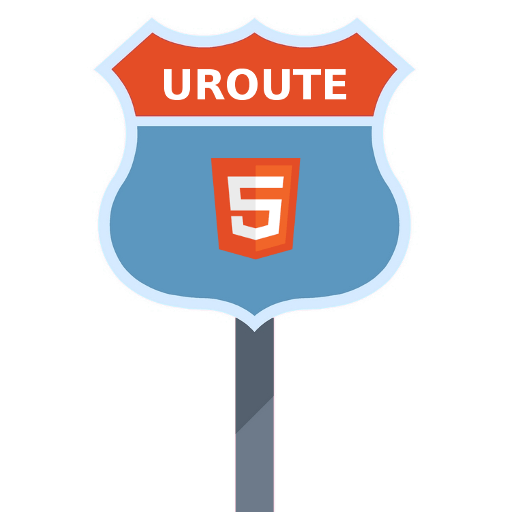uroute v1.1.0
uroute 1.1.0
Microscopically small universal router
.

.
Installation
npm install --save urouteRequire
var route = require('uroute')
var match = route.match
// or
var route = require('uroute').route
var match = require('uroute').matchImport
import route, { match } from 'uroute'
// or
import { route, match } from 'uroute'Why
Basically a port of Universal Router (https://www.kriasoft.com/universal-router/) by Konstantin Tarkus from Kriasoft LLC, this module does not use generators or async functions, two upcoming features in Javascript. Cool as they are, these currently require the Babel runtime, along with the regenerator runtime/transform to be loaded. This added a lot of weight to my app which does not need these, so I refactored Universal Router to not depend on these features. The result is this module. It passes all original tests, though I had to make some changes (as the tests were also using async functions).
Usage
Define a route tree. This can be done with the route function:
var routes = [
route('/', function(){
return 'Welcome to the homepage of Cool Corp!'
},
route('/products', function(){
return 'View our cool products'
}),
route('/about', function(){
return 'About Cool Corp'
})
]This will create a route tree that looks like this:
[
{
path: '/',
action: [Function]
},
{
path: '/products',
action: [Function]
},
{
path: 'about',
action: [Function]
}
]The use of the
routefunction is purely optional syntax sugar for your convenience. If you want, you can create the route tree 'by hand' so to speak.
Once you have created a route tree, use match to find the matching nodes and invoke any actions on them:
var matched = match(routes, '/products')match returns a Promise. Invoke it's then method to get access to the response:
matched.then(function(response){
console.info(response) // View our cool products
})match runs through all the routes in the tree, executing the actions on those
routes that match the given url, until it finds one that resolves to a response
that is not undefined. The first such response found is used.
Parameters
We can use parameters in our routes and they will be captured and made available
on the params object of the context that is passed to our actions:
var routes = route('/:one/:two', function(context){
return context.params.one + ', ' + context.params.two + ', ...';
})
match(routes, '/1/2').then(function(result){
console.log(result) // 1, 2, ...
})
match(routes, '/un/deux').then(function(result){
console.log(result) // 'un, deux, ...'
})
match(routes, '/eins/zwei').then(function(result){
console.log(result) // 'eins, zwei, ...'
})For more details refer to the documentation of path-to-regexp.
Async
Route actions may return promises.
Middleware
Route actions may act as middleware by utilizing the next and end functions
passed to them on the context parameter. Let's create a simple middleware
function to modify the repsonse of any of it's child routes:
function greeterMiddleware(context) {
// use context.next() to get the next response in the chain
return context.next().then(function(response){
// augment the response in some way
response = 'Hello' + (response ? ', ' + response : '')
// return the modified response
return response
})
}Now we'll set up our routes to have the middleware on the parent, like this:
var routes =
route('/hello',
greeterMiddleware,
[
route('/world', function(){
return 'world!'
})
,
route('/planet', function(){
return 'planet!'
})
]
)The greeterMiddleware will modify the responses of it's children:
match(routes, '/hello').then(function(response){
console.log(response) // Hello
})
match(routes, '/hello/world').then(function(response){
console.log(response) // Hello, world!
})
match(routes, '/hello/planet').then(function(response){
console.log(response) // Hello, planet!
})Issues
Add an issue in this project's issue tracker to let me know of any problems you find, or questions you may have.
Copyright
Copyright 2016 by Stijn de Witt. Some rights reserved.
License
Creative Commons Attribution 4.0 (CC-BY-4.0)
Based on Universal Router (https://www.kriasoft.com/universal-router/) Copyright © 2015-2016 Konstantin Tarkus, Kriasoft LLC. All rights reserved. License: MIT. SEE LICENSE-universal-router.txt.




